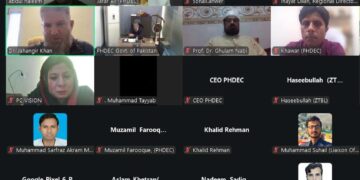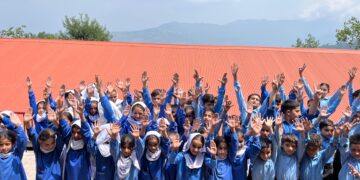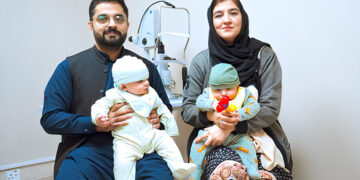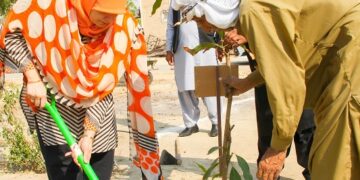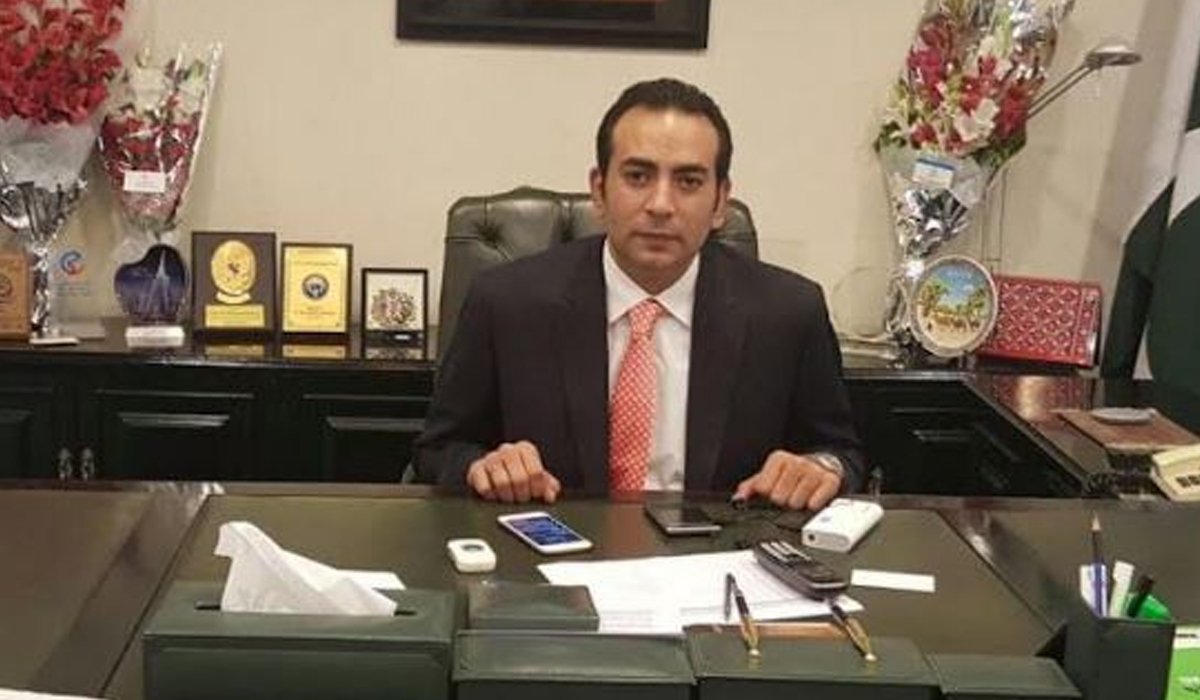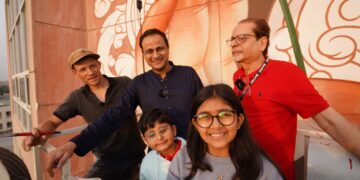The Department of Social Sciences and Liberal Arts, School of Economics and Social Sciences (SESS) at the Institute of Business Administration (IBA) Karachi organized a two-day workshop titled, ‘Doing History’ in Pakistan, on March 7-8 to offer a platform for historians who are working in Pakistan as well as ‘on’ Pakistan and broader South Asia, to discuss issues related to their discipline and think about how they can adopt a more innovative approach towards the themes and topics they teach and the modes in which they teach them to students at local universities.
The keynote address was delivered by Dr. Katherine Butler Schofield, Senior Lecturer in South Asian Music and History, King’s College London, UK whereas four scholars from Quaid-i-Azam University (QAU), Beaconhouse National University (BNU), Lahore University of Management Sciences (LUMS), and IBA Karachi, graced the event as speakers and discussants.
Explaining the rationale behind the selection of speakers for the panels, Ms. Zahra Sabri, chief organiser of the workshop, and a Lecturer in Indo-Islamic History and Literatures at the SESS, IBA Karachi shared that she had tried to bring together scholars doing diverse kinds of History in Pakistan, to educate the audience about the discipline and what kind of History should or should not be done in Pakistan, but also to get a solid and specific taste of the diverse branches of History that prominent scholars in Pakistan are presently working on.
The Executive Director, IBA Karachi, Dr. S. Akbar Zaidi in his opening remarks said, “Where are the trained food historians, labour historians, historians of culture, or even institutions, in Pakistan, leave alone Pakistani historians teaching Latin American or African History? Or, for that matter, historians addressing questions of theory, and themes of a global or interconnected history?” He expressed that the event being organised at the IBA would address such vital questions and welcomed the students and teachers at the event.
The first panel, ‘Knowledge and Identity in the Persianate Ecumene’, featured presentations dealing with the History of Science, Literary/Cultural History, and Architectural History. Dr. Moiz Hasan from IBA, talked about the Iranian polymath theologian Sayyid al-Sharif al-Jurjani and his vision of the mathematical sciences; Ms. Zahra Sabri from IBA, discussed the famous Indian poet Amir Khusrau’s sense of pride in the linguistic and literary accomplishments of residents of Delhi who wrote in Persian; and Dr. Shayan Rajani from LUMS, analysed South and Central Asia’s architectural heritage to highlight how places like Kandahar and Sindh were historically linked through ties of Mughal sovereignty.
The second panel, ‘National Narratives and Local Histories’, focused on Intellectual History and explored how local and regional histories interacted with (by either aligning with or departing from) mainstream or state-promoted versions of history. Dr. Tahir Kamran from BNU, spoke of how the arrival of an Arab Sufi pir Abdur Rahman in the Jhang district of Punjab over a thousand years ago is preserved in the collective memory of the local people through oral literary genres; Mohammad Nabeel Jafri from IBA, drew on ethnographic examples of political themes dealing with Iqbal and Jinnah in the oratorial practices of Shi‘a scholars to demonstrate how multiple nationalist and historiographical narratives exist and proliferate in the imaginations and practices of Urdu-speaking Shi‘a in Pakistan; and Dr. S Akbar Zaidi from IBA, presented evidence from late 19th century Urdu newspapers and other writings to demonstrate how a self-conscious feeling of having suffered ‘humiliation’ at the hands of British colonial rulers became a force for action of socio-religious reform and revival among Muslims in post-1857 north India.
The third and last panel of Day 1, ‘Historising Labour, Ecology, and Economy’, grappled with themes relating to Economic History. Dr. Ahmad Azhar of LUMS, drew on the concrete example of the railway workers’ movement of Lahore, to analyse core theoretical debates in the field of South Asian Labour History, and argue for understanding distinct working-class cultures on their own terms; Dr. Hasan Haider Karrar from LUMS, analysed the effect of salination and seawater incursion on the Indus delta and discussed how longer histories of development and state-building can be told through visible environmental transformations and oral histories; and Dr. Fakhar Bilal from QAU presented findings from his historical case-study of the madrasah Jami‘ah Khair ul-Madaris to analyse how the socio-economic circumstances of post-Partition land allocation and the surplus financial wealth generated by the Green Revolution in the Punjab contributed to the successful relocation of a Deobandi madrasah from Jalandhar, East Punjab (present-day India), after Partition, to a city like Multan which has long been associated with more traditional expressions of Islamic mysticism or Sufism.
Dr. Katherine Butler Schofield’s keynote address, ‘Archives Differing: Stereophonic Methods, Auditory History, and the Paracolonial Indian Ocean c. 1760-1860’ was focused on the History of Music and dealt with the challenges of writing the history of soundworlds in South Asia and the wider Indian Ocean region before the era of recorded music. Through rich visual illustrations and textual quotations, she demonstrated the value and importance of looking at diverse kinds of colonial and indigenous textual archives and paintings to form notions of past musical contexts via Persian, English, Urdu, Braj, and Hindi documents and musical treatises.
The last session of the workshop was a roundtable discussion bringing together many speakers to highlight the directions in which the study of History in Pakistan has been going in recent years, and the need to improve and diversify pedagogical and research practices in the field. Dr. Syed Jaffar Ahmed, Dr. S Akbar Zaidi and Dr. Tahir Kamran spoke of the damage that has been done to the discipline of History by limiting it merely to something called ‘Pakistan Studies’ and tying it to state-sponsored ideological projects of nation-building. They emphasised how even while teaching Pakistani History as a state-mandated obligatory subject at the college level, teachers can adopt creative solutions to bring more diverse and critical material into the classroom rather than a simple, dry recital of the legal and political steps involving the creation of Pakistan. Dr. Hasan Karrar made a case for encouraging the teaching of a wide variety of History courses for the benefit of students from all fields, and not just for History majors.
The workshop was attended by IBA students, staff, faculty, alumni, and participants from other universities. Gathering suggestions from the audience, speakers reached the conclusion that there was an overall desire for teaching History, of adopting more innovative approaches in the teaching of History such as introducing students to diverse kinds of textual and non-textual oral and material archives, of the need to do a better job in curating the historical archives that do exist in Pakistan, and of teaching the histories of less prominently discussed sectors of the population, such as common labourers , artisans, religious, sectarian, ethnic minorities, women and transgenders.







